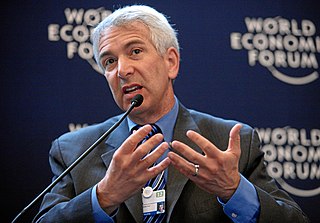A Quote by Gloria Steinem
The cleanup costs of polluting a river, injecting pesticides into the ground water, or putting noxious gases into the air have not been figured into the cost of the manufacturing or agribusiness that put them there in the first place. Historically, the economic incentive has been to pollute.
Related Quotes
We've had a century in which we've allowed some industries to basically pollute the air, pollute the water, pollute the ground, pollute the rivers, and we've been trying sporadically to clean air acts and ways of regulating them. But we now are sitting in a world that's filled with all sorts of materials that we don't really know the impact of. It's not like they're necessarily all poisonous but it's odd to put all these materials into our environment and watch.
The farmer and the farm, like "the environment," are looked upon, for example, as means to offset trade deficits. The farm is a place where we can externalize costs. The cost of pesticides to the farmer and the cost of the pesticides to the soil and groundwater are regarded similarly by the public: "a serious problem that something ought to be done about." But the problem is more fundamental than this glib statement would indicate, for soil pollution is an expense of production. So are pesticides and nitrates in our farm wells. So is the loss of farmers from the land.
Santa Monica Bay is less polluted today than when I first moved to the area in the 1970s, because actions have been taken to avoid putting some of the noxious materials into the sea. I think people are more aware than they once were, the air is cleaner, water generally is, in spite of the fact that there are more people.
What, then, is the effect of pesticides? Pesticides have created a legacy of pain, and misery, and death for farm workers and consumers alike. The crop which poses the greatest danger, and the focus of our struggle, is the table grape crop. These pesticides soak the fields. Drift with the wind, pollute the water, and are eaten by unwitting consumers. These poisons are designed to kill, and pose a very real threat to consumers and farm workers alike.
The Musketaquid, or Grass-ground River, though probably as old as the Nile or Euphrates, did not begin to have a place in civilized history until the fame of its grassy meadows and fish attracted settlers out of England in 1635, when it received the other but kindred name of CONCORD from the first plantation on its banks, which appears to have commenced in a spirit of peace and harmony. It will be Grass-ground River as long as grass grows and water runs here; it will be Concord River only while men lead peacable lives on its banks.
Student loans have been helpful to many. But they offer neither incentive nor assistance to those students who, by reason of family or other obligations, are unable or unwilling to go deeper into debt. ... It is, moreover, only prudent economic and social policy for the public to share part of the costs of the long period of higher education for those whose development is essential to our national economic and social well-being. All of us share in the benefits - all should share in the costs.
Canada is the worst polluter in the world right now. There's absolutely no sign on a federal level that there's going to be any alleviation of the polluting that's going on. Even the Parti Québécois in Québec, which is historically a party that has been leftist and environmental - they are trying to give $450 million subsidies to polluting enterprises in Gaspé. These, to me are my problems.
Words are humanity's greatest natural resource, but most of us have trouble figuring out how to put them together. Words aren't cheap. They are very precious. They are like water, which gives life and growth and refreshment, but because it has always been abundant, we treat it cheaply. We waste it; we pollute it, and doctor it. Later we blame the quality of the water because we have misused it.
Nature is out there, and we can do what we like to it. We can cut down the rain forest. We can put animals in factory farms and slaughter them as we like. We can over-fish the oceans. We can pollute the rivers. We can pollute the water and change climate. We are somehow superior to nature. We are somehow rulers of nature.






































